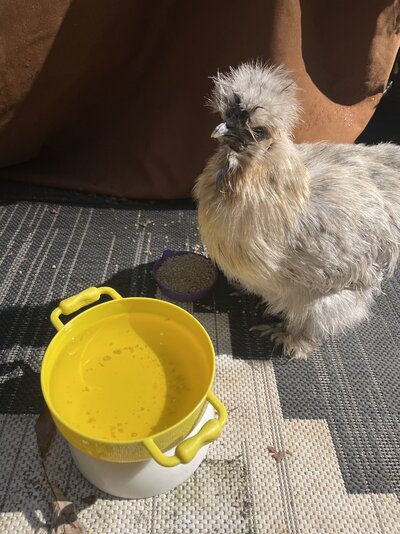Myrtle is a 3 year old silkie. Yesterday I noticed she was not herself - lethargic and just out of it, sometimes nodding off. She is also very thin! I didn’t notice initially because of all of her fluffy feathers. She still eats and drinks when I put it in front of her. I first suspected sour crop because her crop felt mushy. But it seemed like it emptied by morning And there aren’t any sour smells coming from her that I can notice. I have not had any crop issues before, so I’m new to what’s normal and what’s not. Hers just feels so different from my other chickens. So I’m still unsure if this is crop-related.
Her poop is runny, green and white. The rest of my flock is totally normal.
Right now I have her isolated inside. I am still giving her food and water with electrolytes. She did seem to perk up a little today, but still pretty much wouldn’t leave her little area on the deck. Every once in awhile she would wander off under a tree or bush. I am unsure of what to do next since I cannot seem to figure out the culprit. Any insight would be greatly appreciated!
Her poop is runny, green and white. The rest of my flock is totally normal.
Right now I have her isolated inside. I am still giving her food and water with electrolytes. She did seem to perk up a little today, but still pretty much wouldn’t leave her little area on the deck. Every once in awhile she would wander off under a tree or bush. I am unsure of what to do next since I cannot seem to figure out the culprit. Any insight would be greatly appreciated!




